In search of magic: Walking on the moon
We continue the series of articles about traveling in Tibet. Together with you, we will make 5 air flights, visit about 10 cities, drive several thousand kilometers by car, climb from a height of 300 to 5,300 meters in three days, see cosmic landscapes, legendary monasteries and caves of the greatest yogis. Join us!
This issue is entirely devoted to the lunar landscapes, roads and passes of Tibet, which deserve special attention.
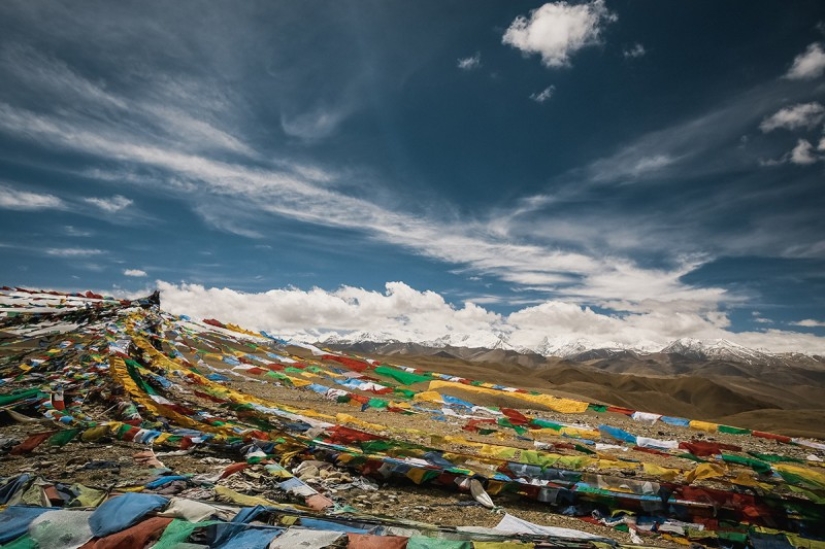
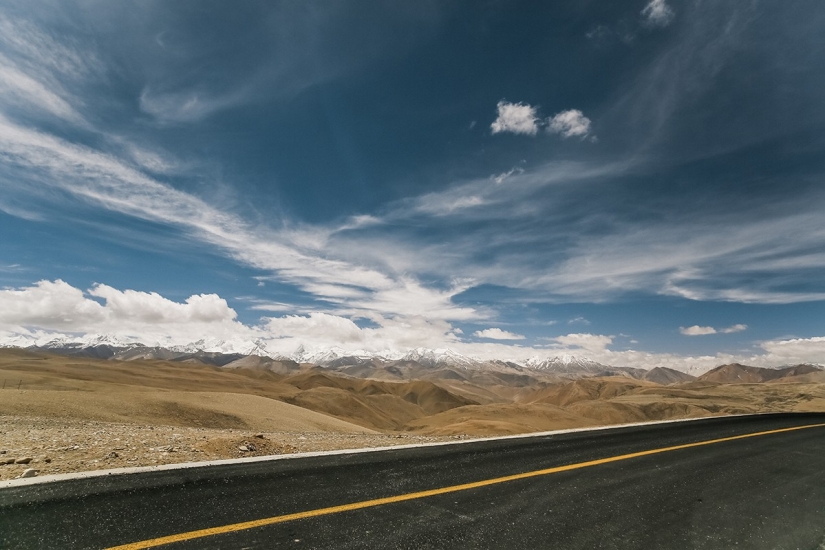
No lens is able to convey this cosmic scale and tranquility reigning around. The roads throughout are very good, concrete blocks or fences are everywhere, in some cities all roads are made of concrete slabs. We don't have such good roads as there, especially between cities.
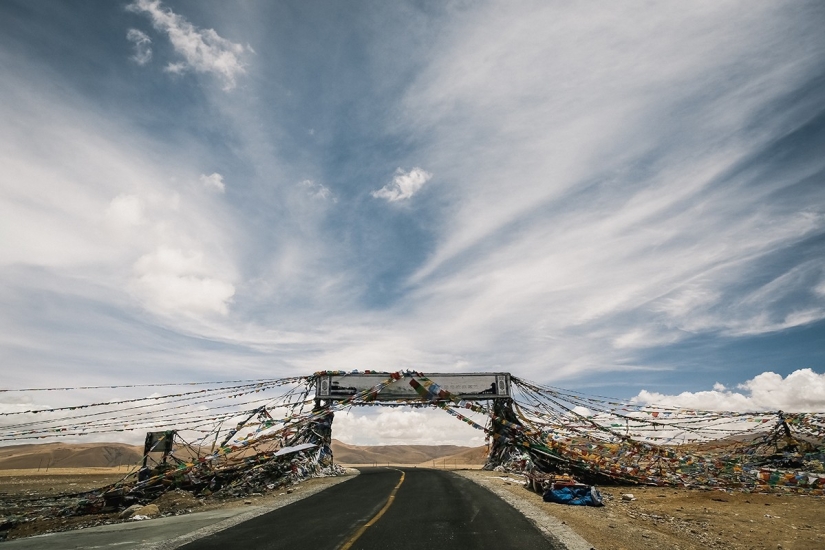
The Tibetan plateau is located approximately at an altitude of 3600-3900 m above sea level, it is very difficult to be there without acclimatization. And it is even more difficult on the passes, the height of which is usually 5200-5300 m above sea level. All the passes have their own names, gates, and according to Tibetan custom, numerous lungta flags with protective mantras are hung there.
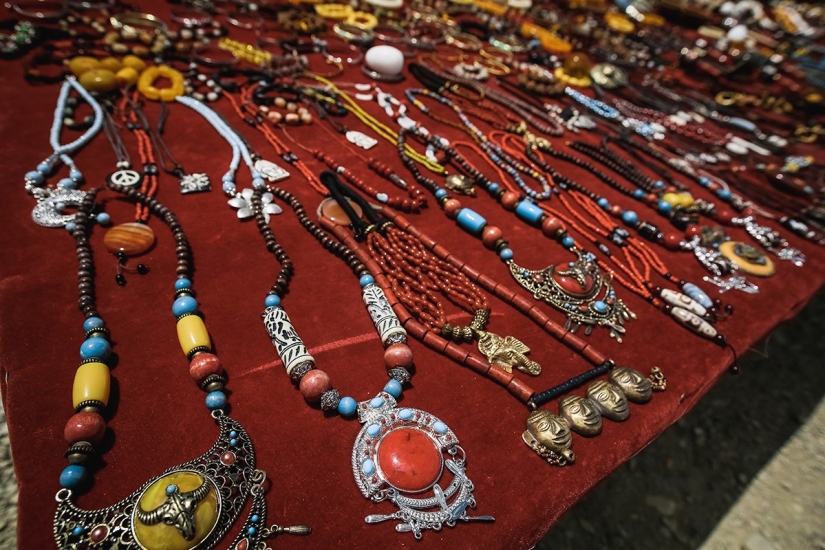
At each pass you can buy souvenirs and lungta. Flags can be hung wherever your heart desires. Sometimes they hang at such high points and on such steep cliffs that the skin is covered with goosebumps just from the sight.
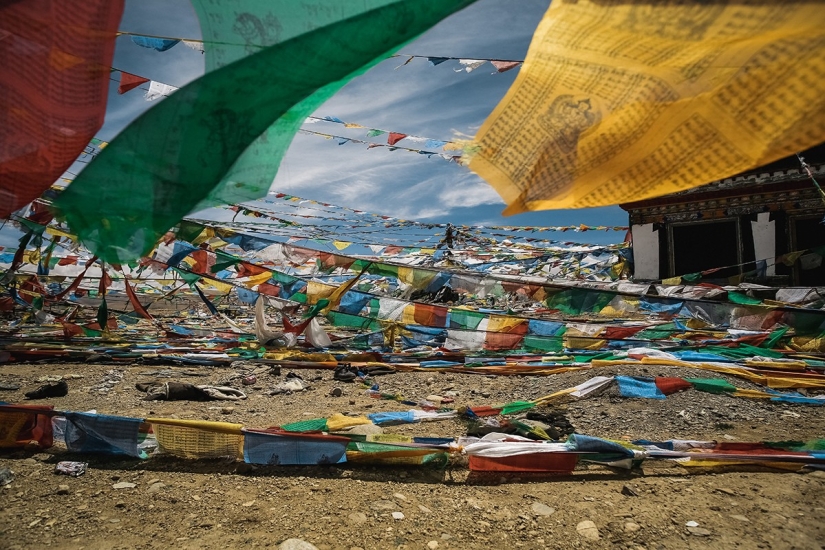
On some passes we saw a lot of old clothes. Tibetans have such a tradition - to leave the clothes of deceased relatives in special places. And the passes are just like that - special, power-filled places.
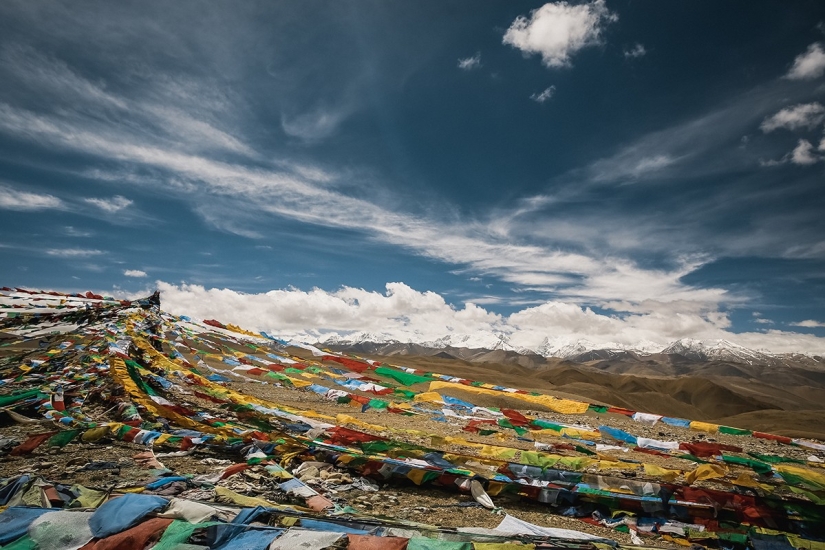
Where there is nothing to hook the flags, they put huge tarchang poles.
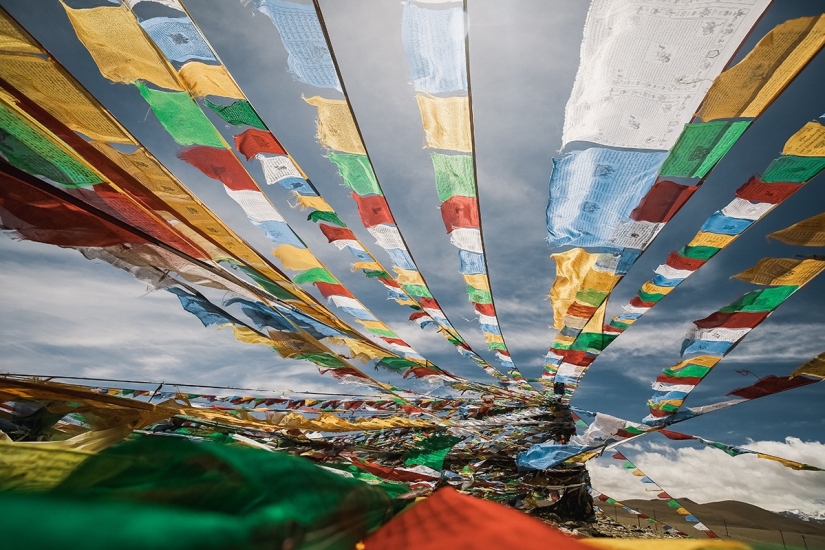
The flags are connected to each other and multi-meter ribbons are obtained. It looks fantastic.
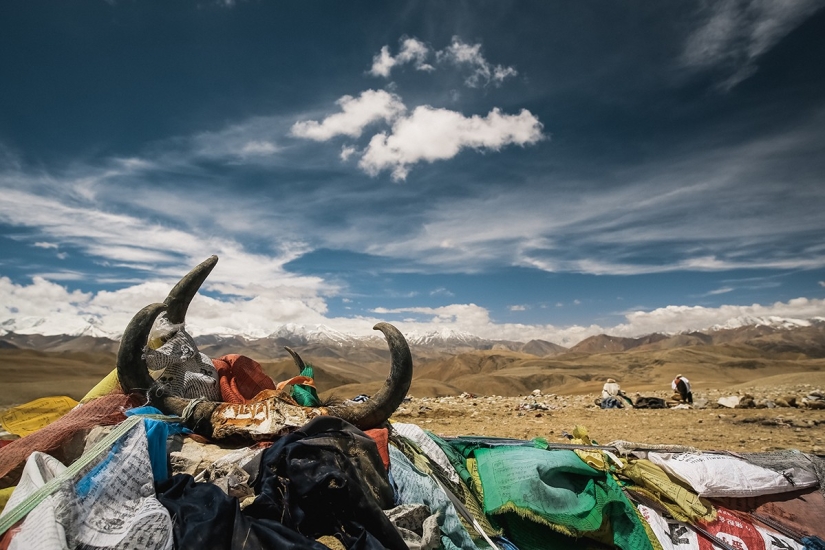
Skulls of the yak, the most popular Tibetan pet, are also found on the passes and in other places. Mantras are often carved on them.
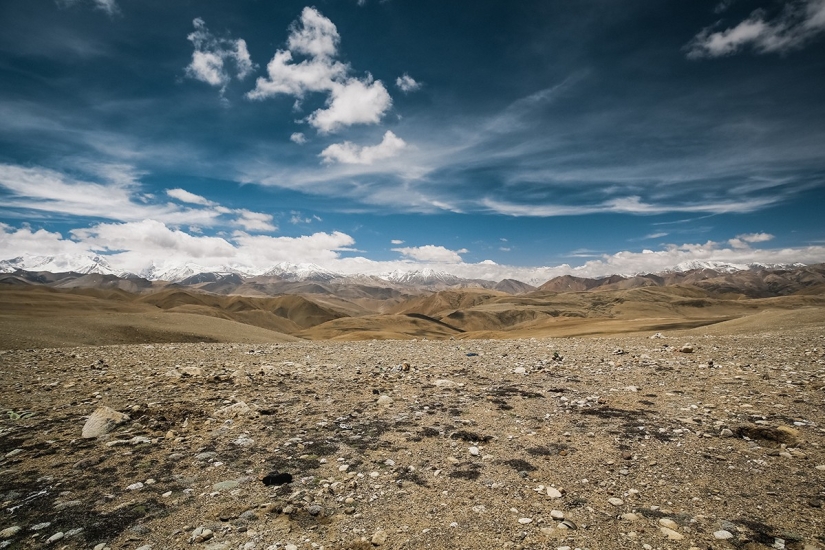
It should be noted that it is very difficult to be on the passes. We got to the first pass at 5,300 m a day after entering the territory of Tibet. To say that it was bad for us is to say nothing. Very dizzy, heart pounding, frantic shortness of breath, it is very difficult to bend over and even more so to walk quickly.
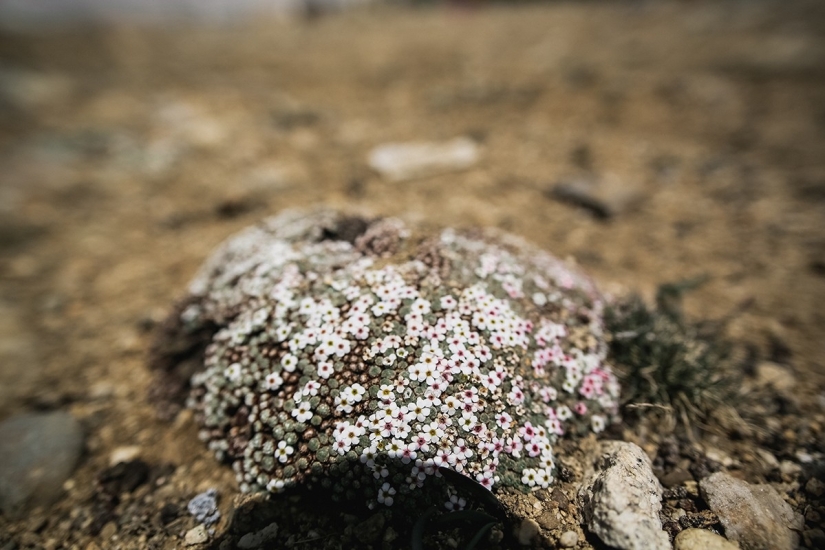
The only flowers we saw on the pass.
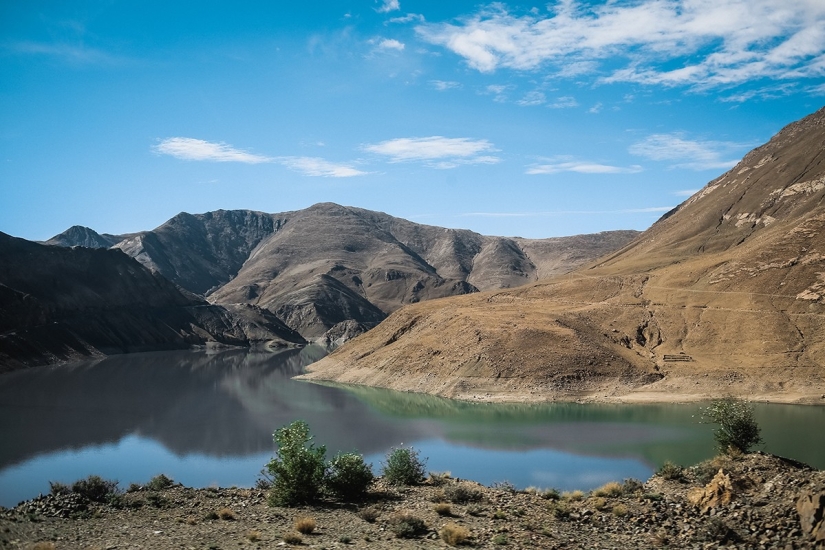
When you go down into the valley, it becomes easier to breathe, pieces of greenery appear, and you realize that this is the Earth after all.
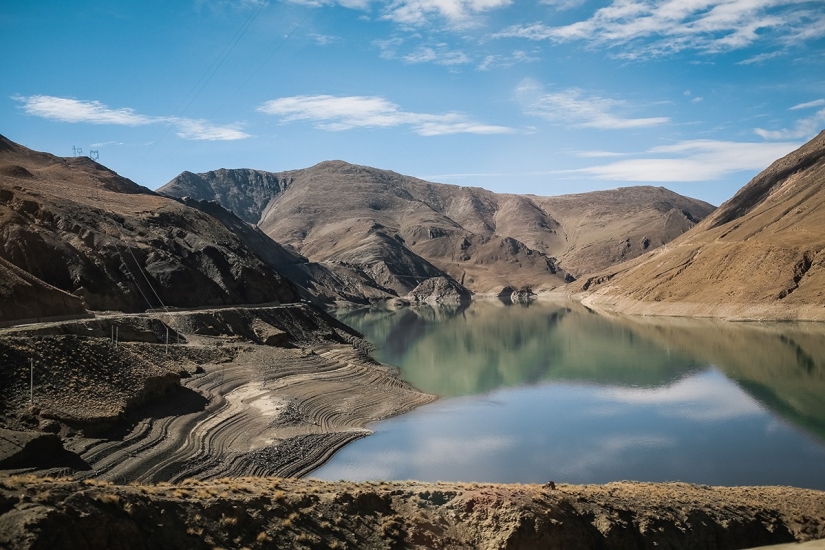
This is not a lake, as it may seem, but a reservoir. But in any case, it is one of the most picturesque reservoirs of Tibet. Its length is several tens of kilometers.
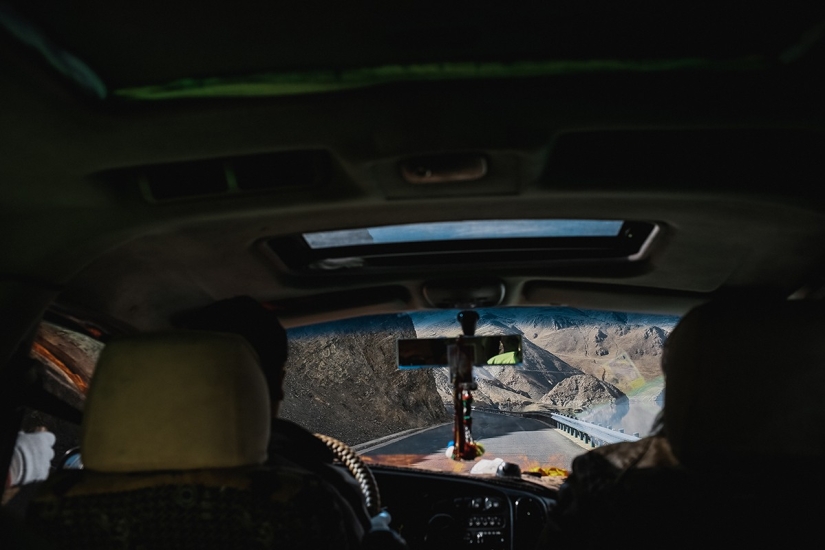
On the road along the reservoir. There are very sharp turns on the mountain serpentines, and all drivers always give a sound signal in advance. There were such areas when our driver beeped constantly. Interestingly, they do this even on deserted highways, where there are no mountains and the turn is clearly visible, but these are the local rules.
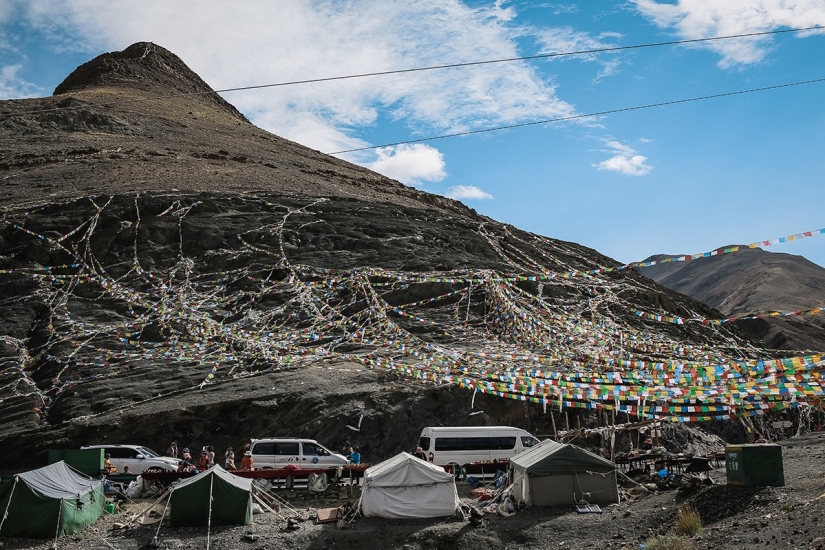
Souvenir town on the observation deck at the reservoir. For many Tibetans, this is the only income.
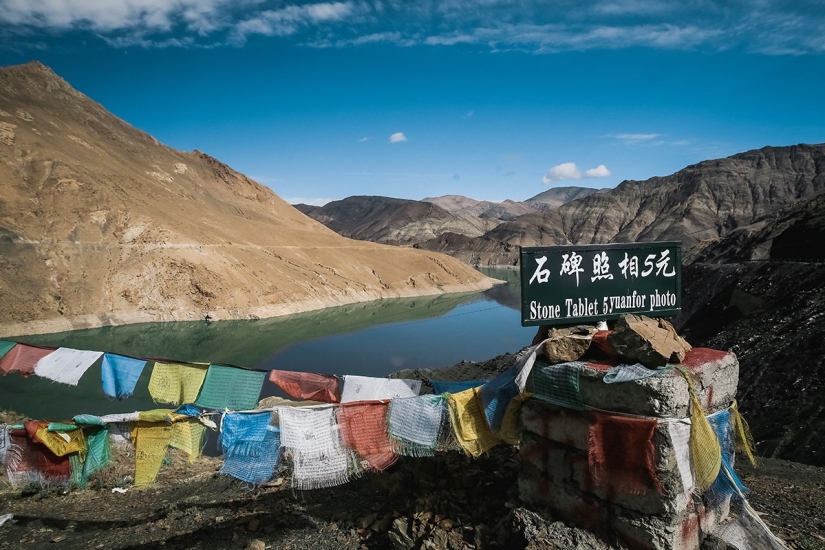
A very funny place, apparently built by the locals to collect money from tourists for a photo from this point. You can move a couple of meters to the side and take it off for free.
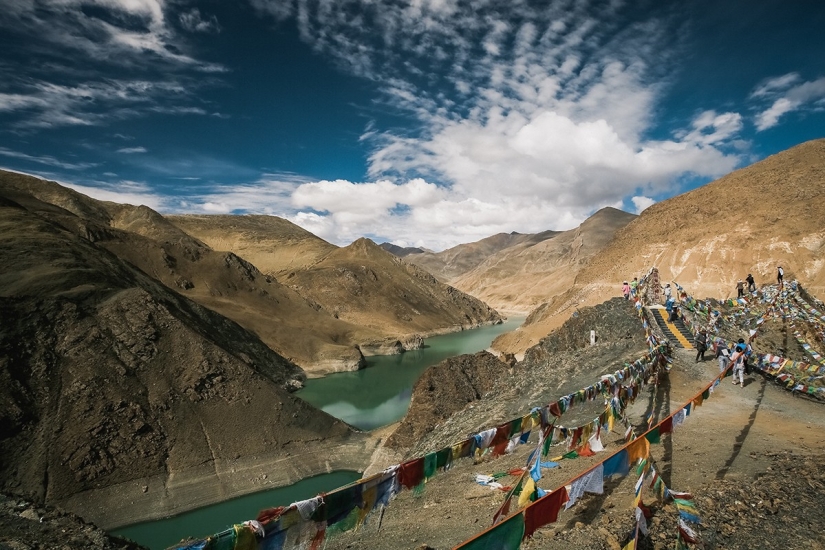
View from a free point.
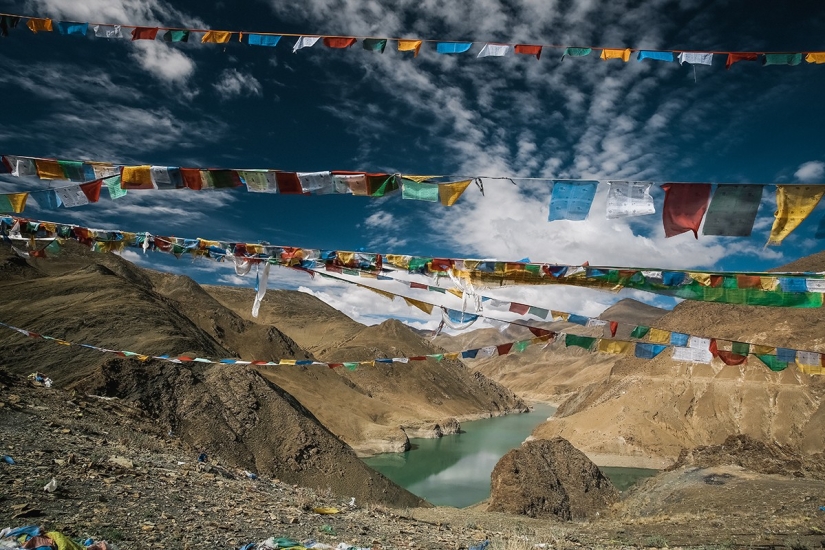
Space…
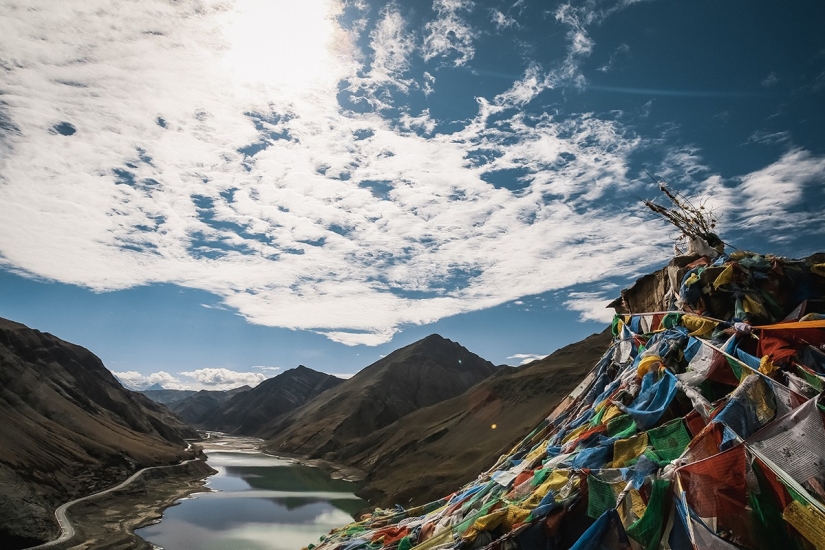
Throughout Tibet, you can see numerous stone towers – these are symbolic stupas that embody our body, speech and mind, anyone can build them. They are put together for savdaks (spirits) – patrons of the area. As our guide told us, it is necessary to make them small and read a certain mantra at the same time, but this will remain our secret.
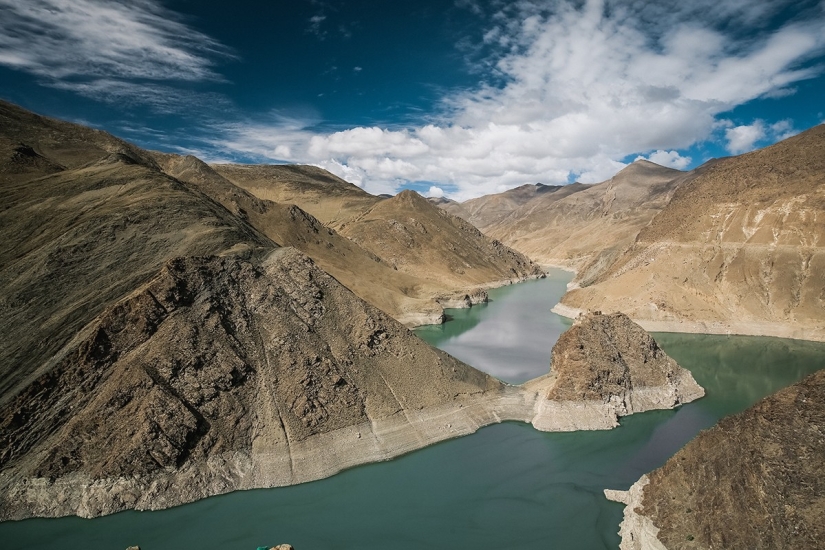
View of one of the oldest glaciers.
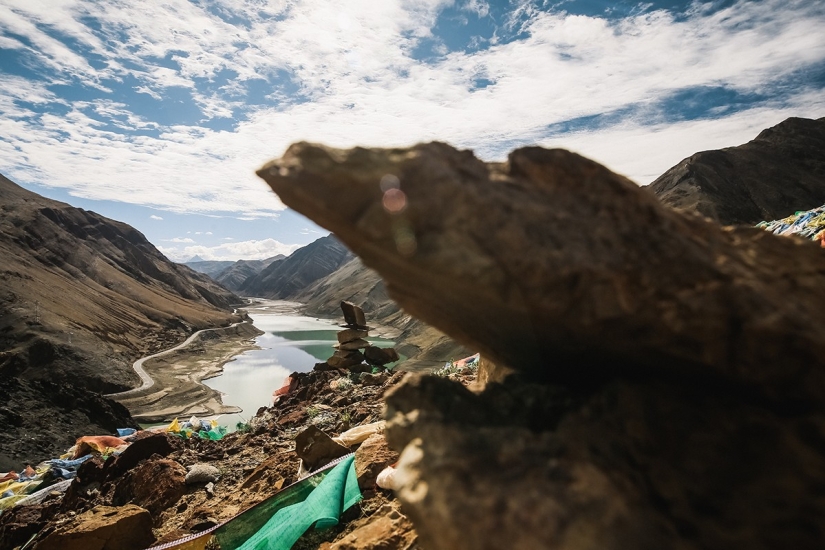
The thickness of the ice is several meters. He lies in a huge influx on the mountain under the scorching sun. The feeling is indescribable.
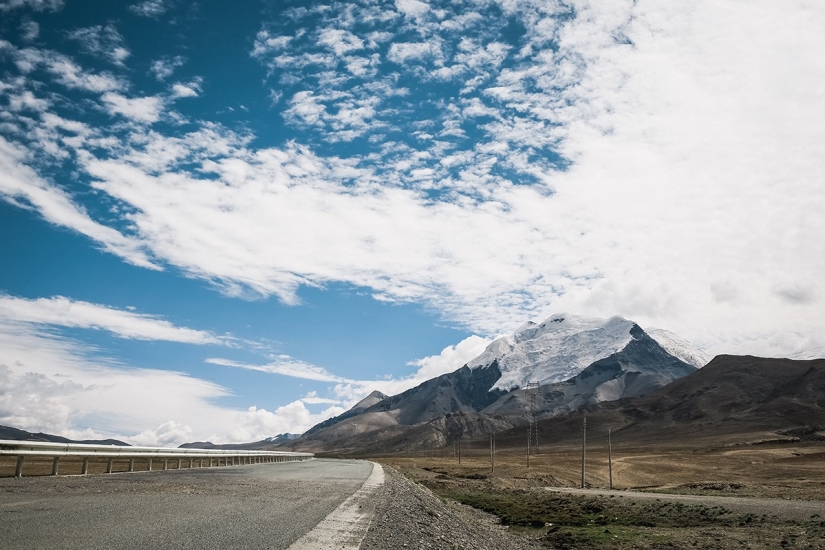
Glacial water is the purest and tastiest.
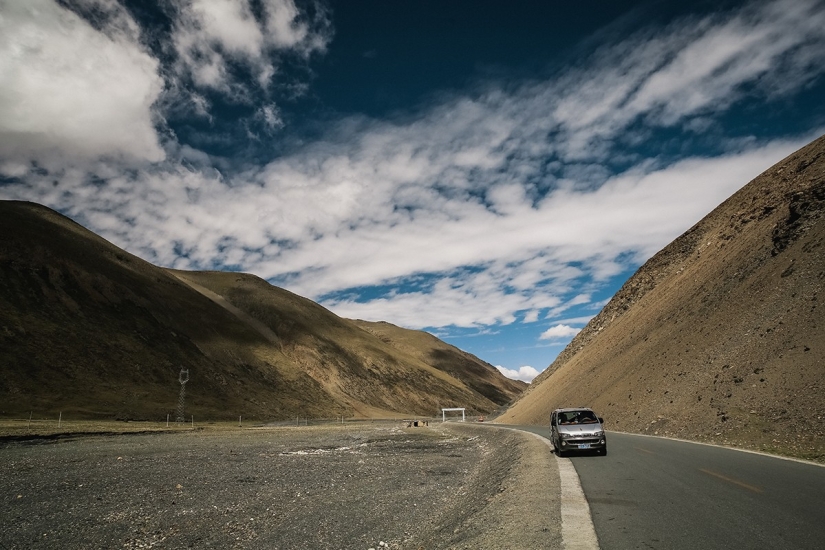
Our wonderful guide Tenzin.
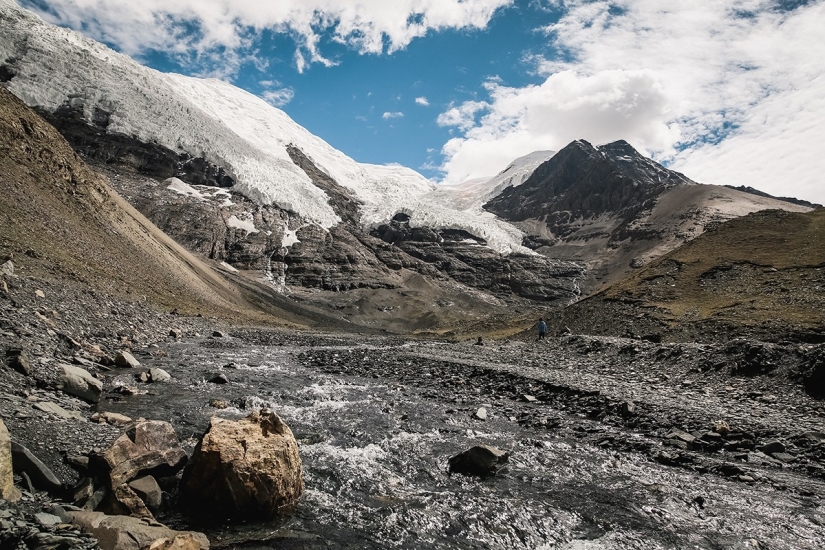
Yamdrok-tso, Turquoise lake. One of the three greatest sacred lakes of Tibet. The length of the lake is several dozen kilometers. The water is salty, like in the sea. Actually, this is the rest of the ocean that existed here millennia ago. The entire Tibetan plateau was once the bottom of this ocean.
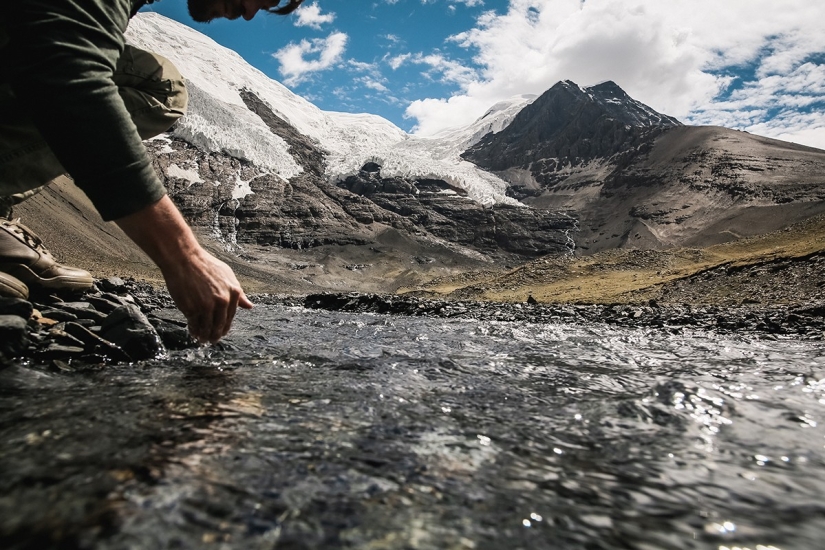
According to legend, naga snakes live in the lake. Locals never swim here or swim across the lake, because, as the Tibetans themselves say, many such attempts end in the wreck of boats.
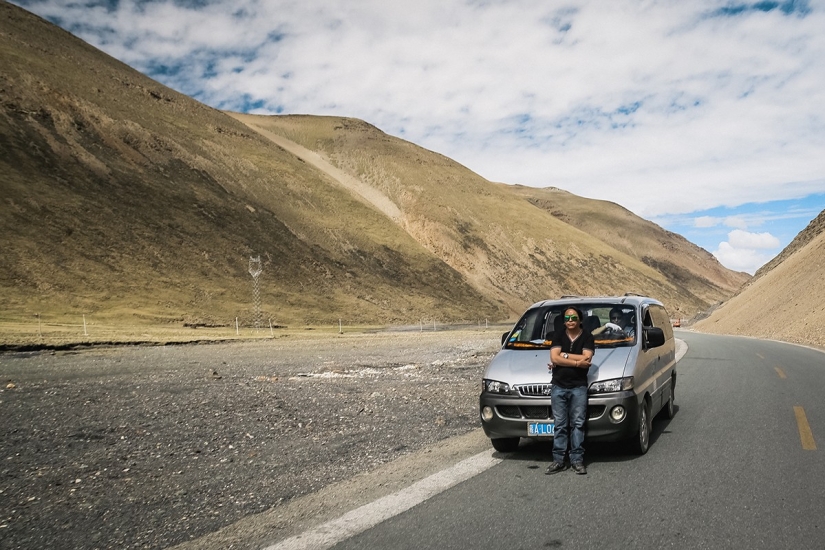
We got to the lake in the rain.
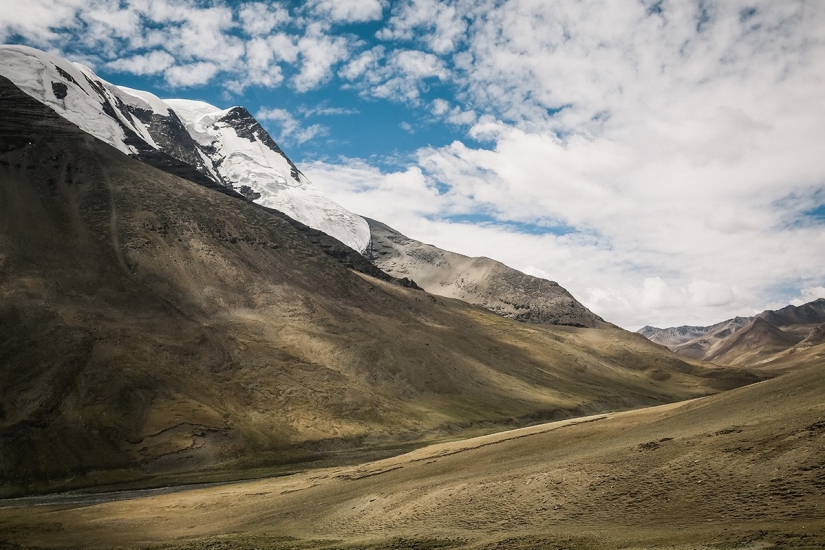
It was very cold, the gusts of wind, waves and the guide's stories about the Nagas living in the lake were a little awe-inspiring. Moreover, out of a thousand lakes in Tibet, the locals worship only three.
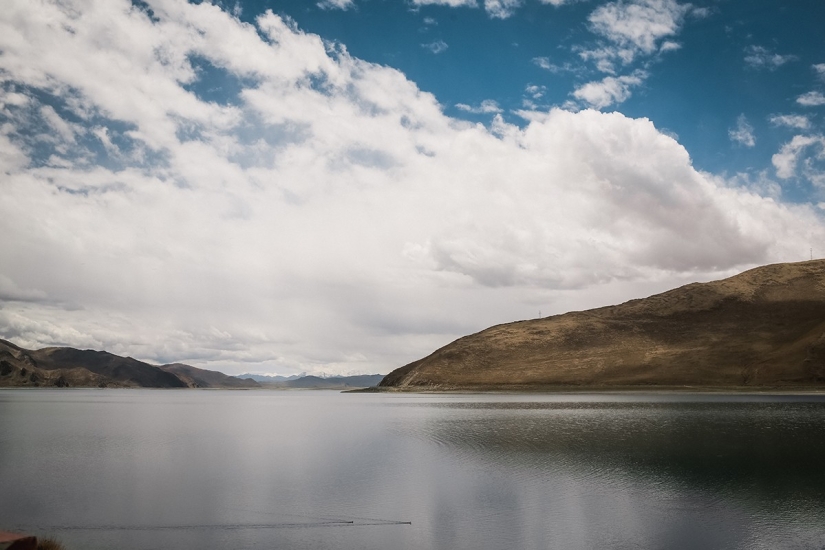
Here is such a beauty made by a polarizing filter.
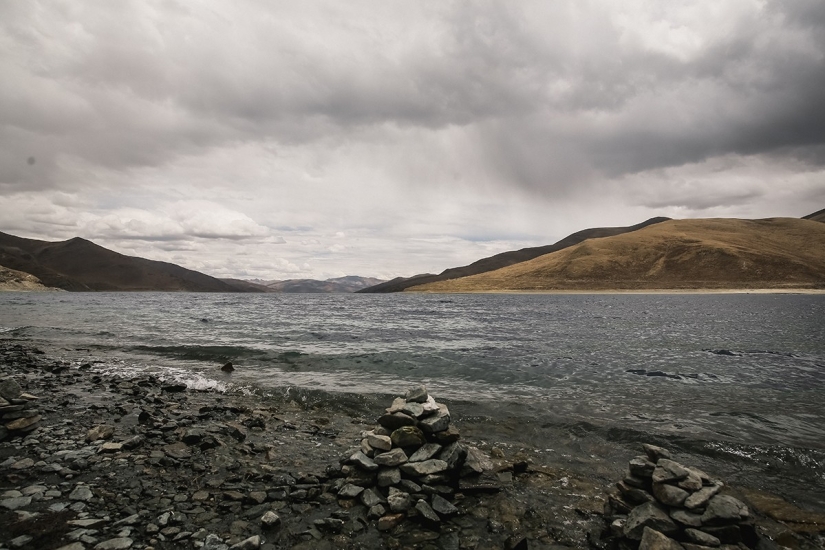
A valley near Lhasa. We descend along the steepest serpentine from 5200 to 3600 m above sea level.
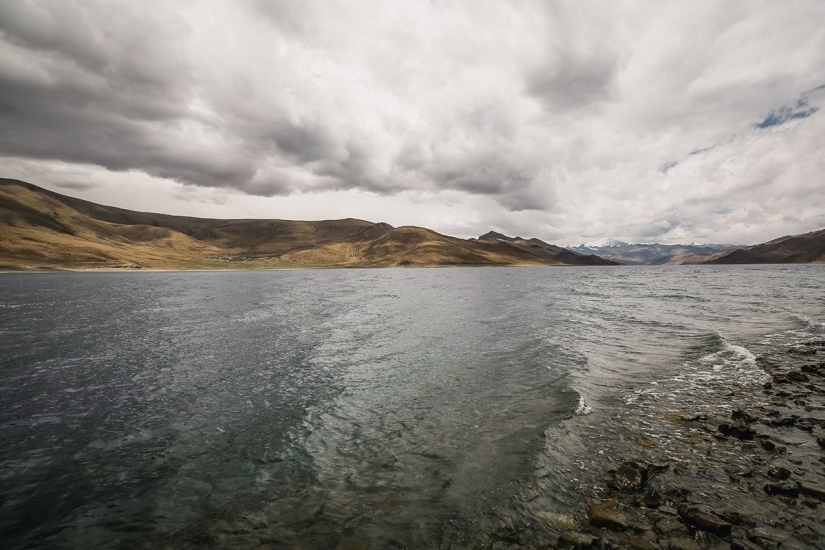
Another pass, Kamba la
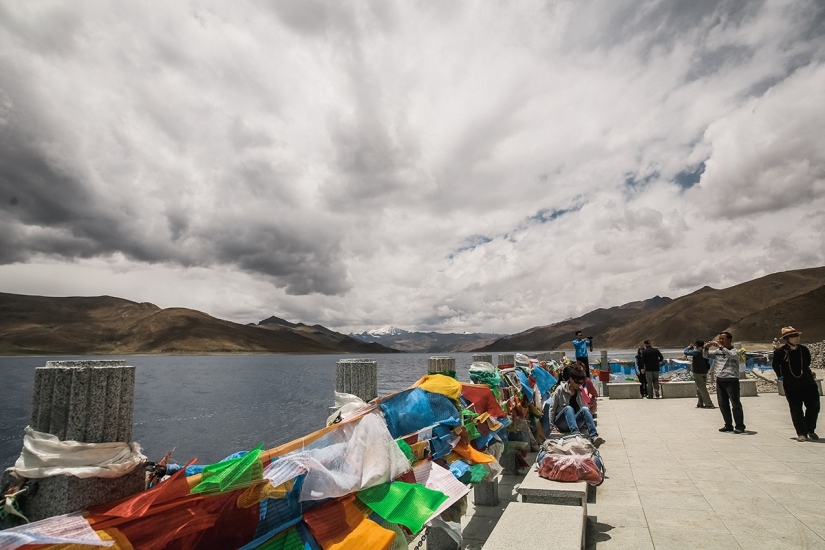
The mantra on the stone is om mani peme hung. This mantra of Avalokiteshvara, the bodhisattva of compassion, is the most popular in Tibet, and, perhaps, in the whole world. Tibetans constantly recite it, turning over rosaries, carve on stones and yak skulls, write on all kinds of amulets.
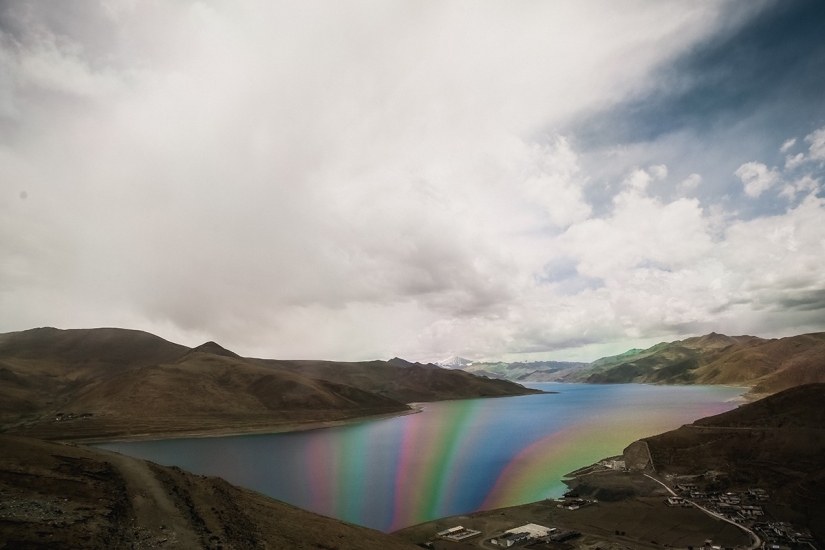
A huge Tibetan mastiff lives on the pass, you can take pictures with him for a little money. When you see these dogs live, it becomes a little scary from their size and power. A couple of times we saw mastiffs in the city near the shops. Despite this, this breed of dog is quite rare in Tibet.
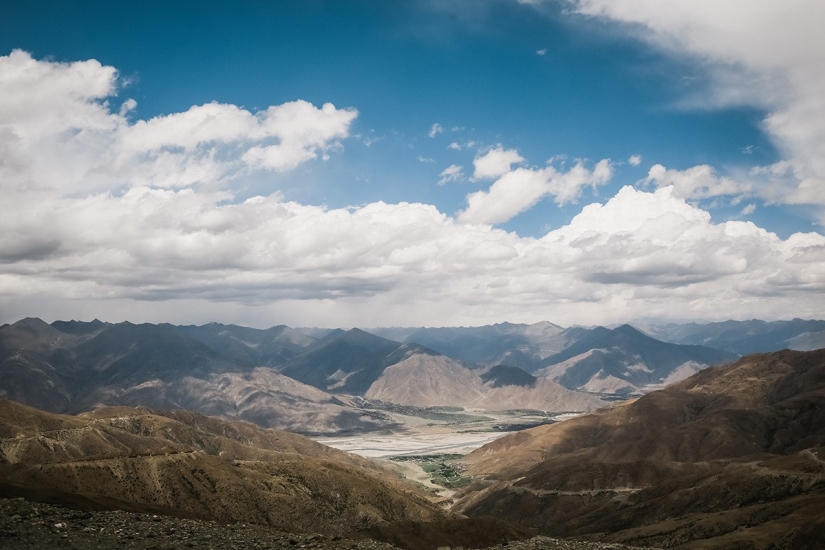
Yarlung River, aka Brahmaputra. Dirty and smelly. It flows from the Tibetan mountains to India.
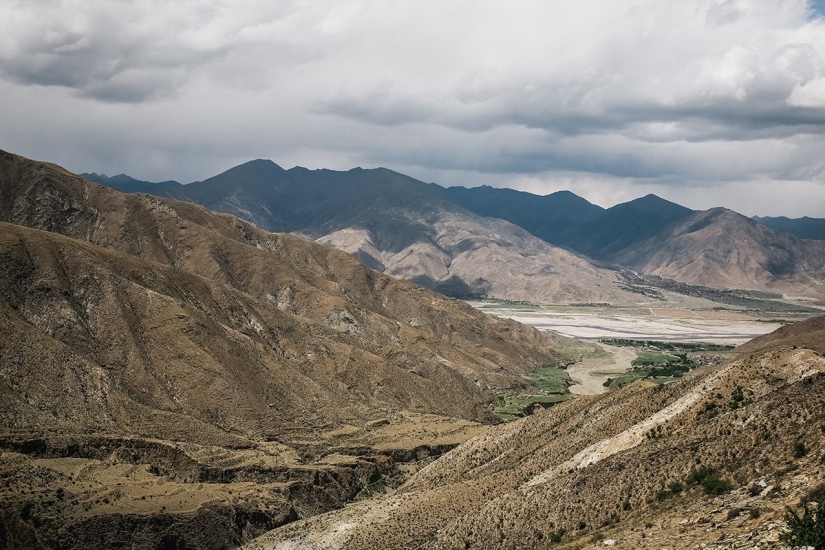
We're flying home.
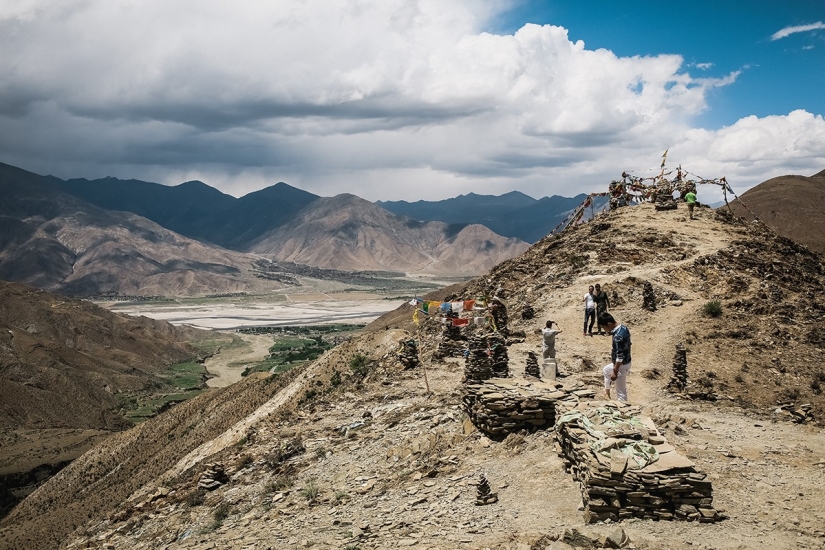
The roof of the world is Everest, or Jomolungma. Although in Tibetan, the Jomolagnma sounds more correctly. This name translates as the Divine Mother, in honor of the Bon goddess Sherab Chamma. The highest point on earth. Above – only by plane).
Photo: Ekaterina Ageeva / Text: Sergey Martynov
Keywords: In search of magic | Road | Moon | Tibet | Cycle
Post News ArticleRecent articles

It's high time to admit that this whole hipster idea has gone too far. The concept has become so popular that even restaurants have ...

There is a perception that people only use 10% of their brain potential. But the heroes of our review, apparently, found a way to ...
Related articles

Passage du Gois (Passage du Gois) is a road laid along the bottom of the Bay of Bourneuf and connects the mainland of France with ...

The Argentine photographer Alejandro Chaskielberg received recognition because of his unusual pictures. He takes all the photos by ...

Of all the ancient civilizations, the culture of the Maya Indians remains the most interesting and mysterious. Much of the heritage ...

New Year's is a time to surprise and delight loved ones not only with gifts but also with a unique presentation of the holiday ...